When delving into the world of heavy-duty transportation, the 48 ft flatbed trailer stands out as a pivotal asset for numerous industries. At CarMax Vehicle, we recognize the critical role that trailer weight plays in optimizing logistics, ensuring safety, and complying with regulatory standards. This guide offers an in-depth exploration of the 48 ft flatbed trailer weight, addressing key aspects that influence its performance and suitability for various transport needs.
Table of Contents
- Introduction to 48 ft Flatbed Trailers
- Key Components Influencing Trailer Weight
- Standard Weight Specifications
- Factors Affecting the Total Weight
- Comparative Analysis with Other Trailer Sizes
- Legal and Safety Considerations
- Optimizing Trailer Weight for Efficiency
- Benefits of Choosing CarMax Vehicle for Your Flatbed Trailer Needs
- Conclusion
- Frequently Asked Questions
Introduction to 48 ft Flatbed Trailers
A 48 ft flatbed trailer is a versatile and robust solution tailored for transporting oversized, heavy, and irregularly shaped loads. Its extended length provides ample space, making it ideal for industries such as construction, logistics, and manufacturing. However, understanding the weight dynamics of these trailers is crucial for maximizing their efficiency and ensuring compliance with transportation regulations.
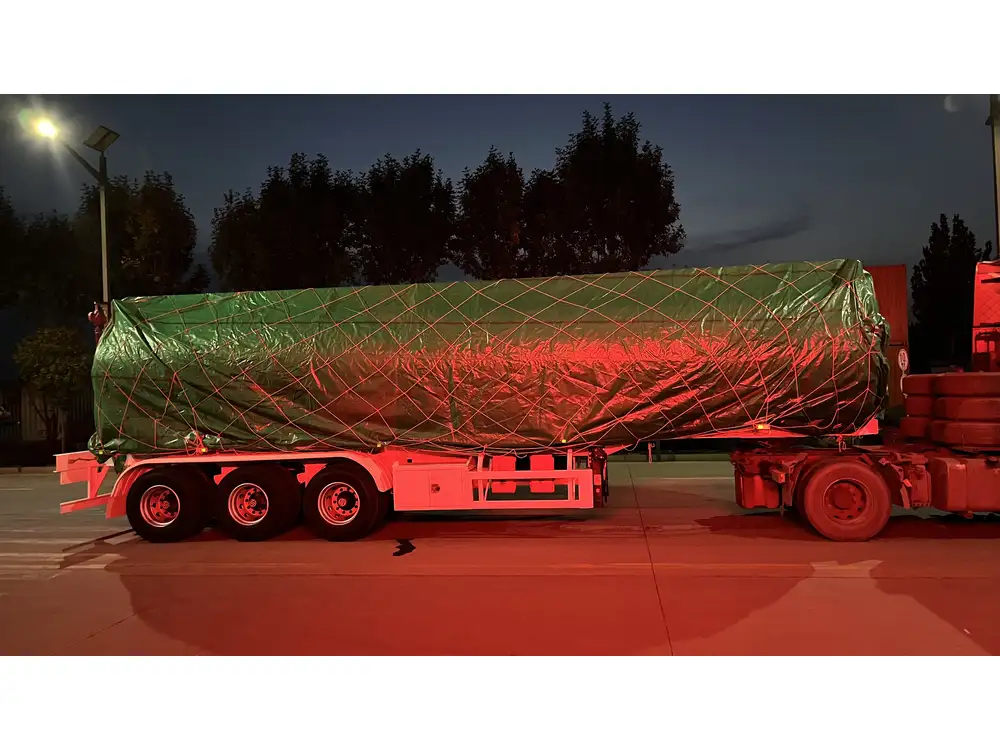
Key Components Influencing Trailer Weight
Frame Construction Materials
The backbone of any flatbed trailer is its frame. Typically constructed from high-strength steel or aluminum alloys, the choice of material significantly impacts the trailer’s overall weight. Steel frames offer superior durability and load-bearing capacity, essential for heavy-duty applications. In contrast, aluminum frames are lighter, enhancing fuel efficiency and reducing overall transportation costs.
Axles and Suspension Systems
Axles and suspension systems are critical in determining the trailer’s weight distribution and load capacity. A 48 ft flatbed trailer may be equipped with single, tandem, or triple axles, each configuration affecting the total weight differently. Advanced suspension systems, such as air or torsion suspensions, contribute to smoother rides and better weight handling, essential for maintaining the structural integrity of both the trailer and the transported goods.
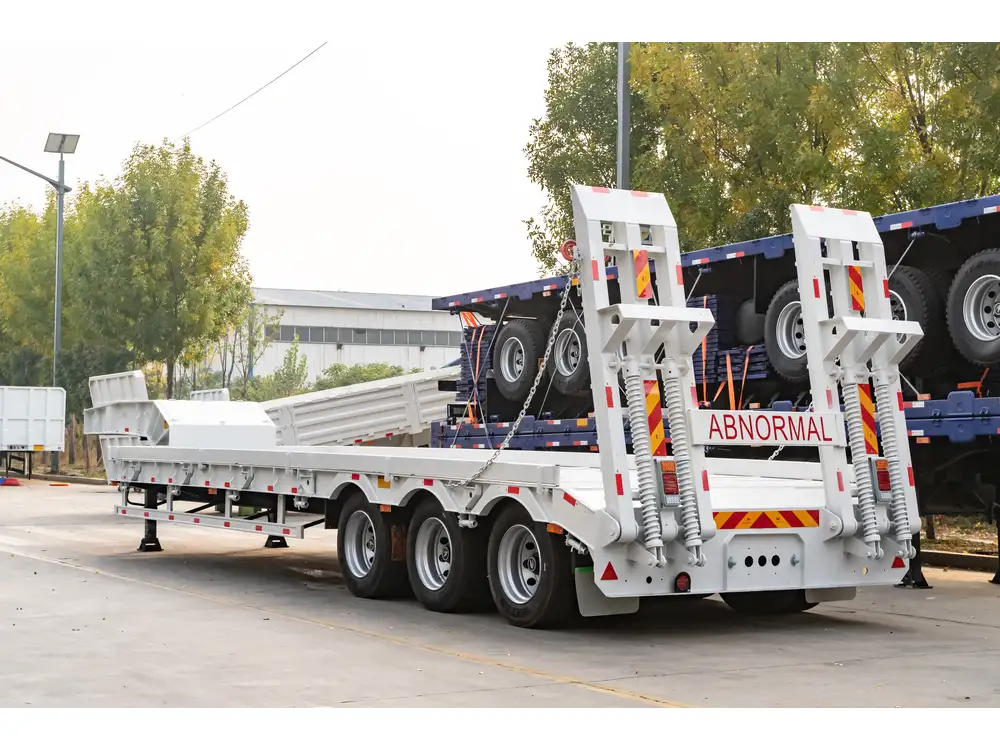
Decking Materials
The decking of a flatbed trailer, whether constructed from steel, aluminum, or composite materials, plays a pivotal role in its weight. Steel decking is robust and capable of handling heavy loads, whereas aluminum decking offers a lighter alternative without compromising strength. Composite materials provide a balance between weight and durability, often used in specialized applications requiring both attributes.
Standard Weight Specifications
Empty Trailer Weight
The empty weight of a 48 ft flatbed trailer typically ranges between 10,000 to 15,000 pounds. This baseline weight accounts for the frame, axles, suspension, decking, and essential components. Manufacturers like CarMax Vehicle strive to minimize this weight through innovative design and material selection without sacrificing durability and load capacity.
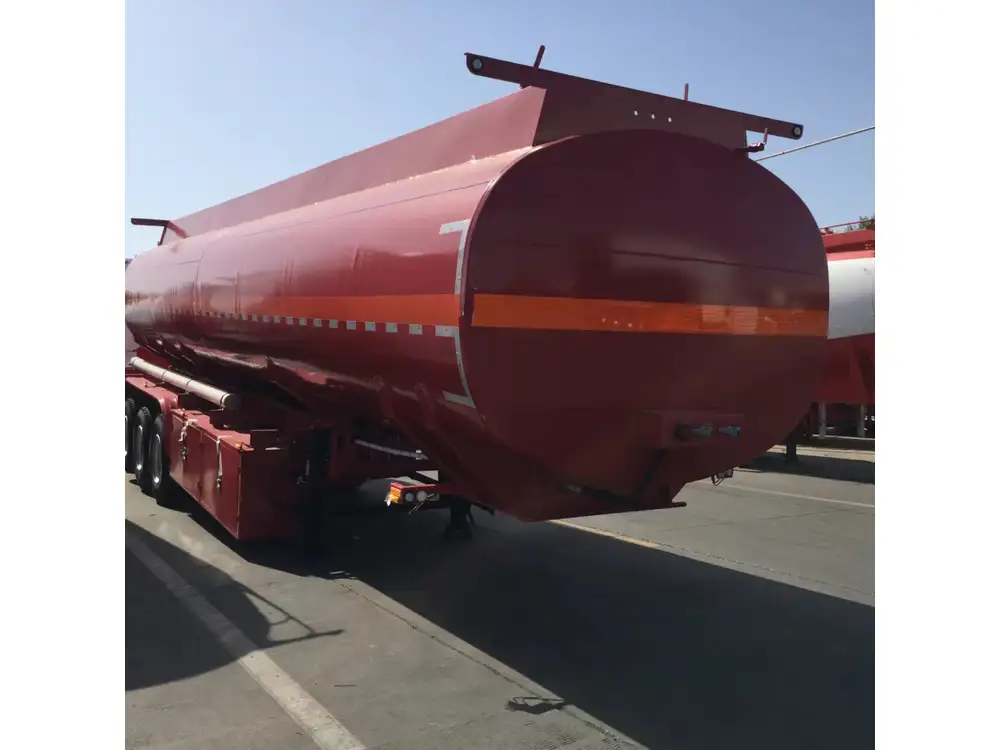
Payload Capacity
Payload capacity refers to the maximum weight the trailer can carry, excluding its own weight. For a 48 ft flatbed trailer, payload capacities generally range from 40,000 to 80,000 pounds, depending on the design and configuration. This capacity ensures that various types of cargo, from construction machinery to large containers, can be transported efficiently.
Gross Vehicle Weight Rating (GVWR)
GVWR is the sum of the trailer’s empty weight and its maximum payload capacity. For a 48 ft flatbed trailer, the GVWR typically falls between 50,000 to 95,000 pounds. This rating is crucial for compliance with road regulations and ensuring safe transportation. Exceeding the GVWR can lead to legal penalties and increased risk of accidents due to overloading.
Factors Affecting the Total Weight
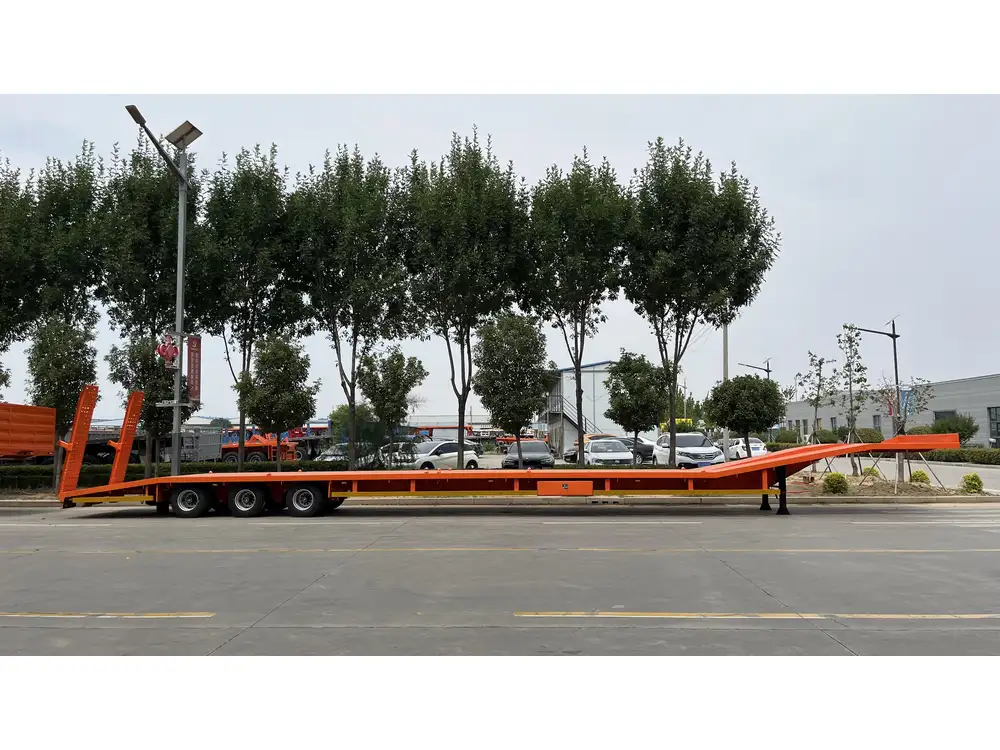
Load Distribution
Proper load distribution is essential in maintaining the trailer’s balance and preventing undue stress on specific sections. Uneven weight distribution can lead to swaying, increased tire wear, and potential structural damage. CarMax Vehicle emphasizes balanced load planning to optimize trailer performance and longevity.
Additional Equipment
Incorporating additional components such as toolboxes, ramps, or winches adds to the trailer’s overall weight. While these features enhance functionality, it’s important to account for their weight when calculating payload capacity and ensuring compliance with GVWR.
Customization Options
Custom configurations, including extended deck lengths, reinforced frames, or specialized suspension systems, influence the trailer’s weight. Tailoring a 48 ft flatbed trailer to specific needs often involves a trade-off between added features and total weight, necessitating careful planning to maintain efficiency and safety.

Comparative Analysis with Other Trailer Sizes
48 ft vs. 40 ft Flatbed Trailers
| Feature | 48 ft Flatbed Trailer | 40 ft Flatbed Trailer |
|---|---|---|
| Empty Weight | 10,000 – 15,000 lbs | 8,000 – 12,000 lbs |
| Payload Capacity | 40,000 – 80,000 lbs | 30,000 – 60,000 lbs |
| GVWR | 50,000 – 95,000 lbs | 40,000 – 72,000 lbs |
| Deck Length | 48 ft | 40 ft |
| Ideal For | Larger, heavy loads | Moderate, standard loads |
The 48 ft flatbed trailer offers a higher payload capacity and longer deck length compared to its 40 ft counterpart, making it suitable for transporting larger and heavier cargo. However, the increased size also means a higher empty weight and potentially stricter regulatory considerations.
48 ft Flatbed vs. Enclosed Trailers
| Feature | 48 ft Flatbed Trailer | Enclosed Trailer |
|---|---|---|
| Empty Weight | 10,000 – 15,000 lbs | 12,000 – 18,000 lbs |
| Payload Capacity | 40,000 – 80,000 lbs | 35,000 – 70,000 lbs |
| Protection | Minimal, open cargo | High, secure cargo |
| Accessibility | Easy loading/unloading | Limited, enclosed access |
| Ideal For | Over-dimensional cargo | Goods requiring protection |
While 48 ft flatbed trailers excel in transporting large and heavy items with ease, enclosed trailers provide added protection against weather and theft, though often at the expense of reduced payload capacity and increased empty weight.
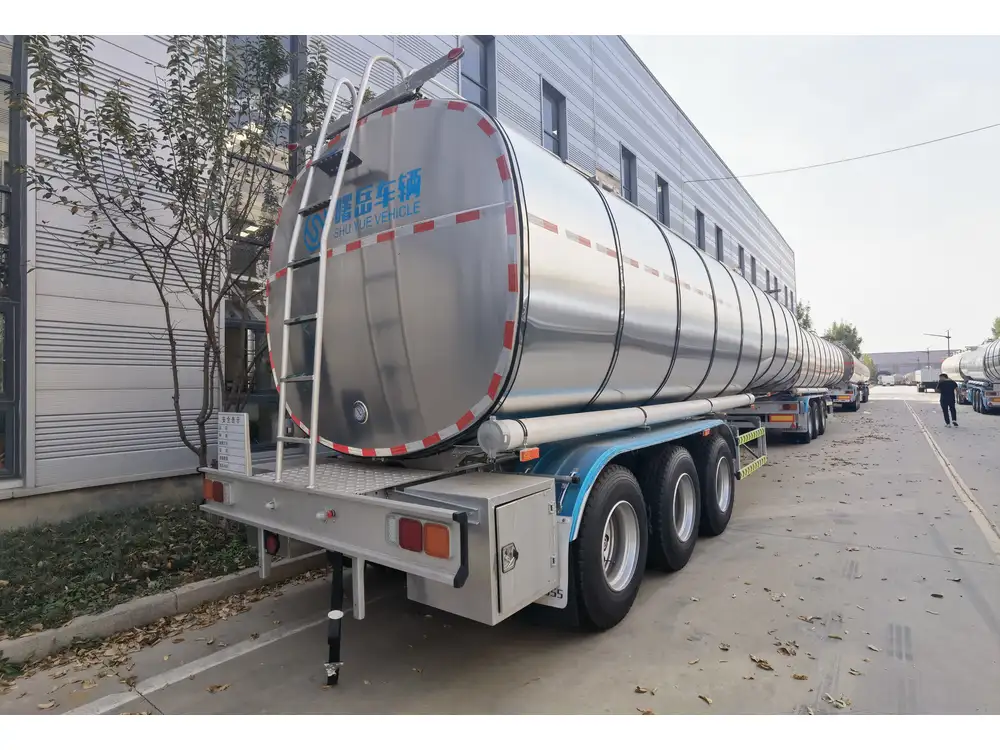
Legal and Safety Considerations
Weight Regulations by Region
Transportation regulations regarding trailer weight vary by region and country. In the United States, the Federal Bridge Formula governs the maximum allowable weight on highway bridges, influencing the GVWR of trailers. CarMax Vehicle ensures that our 48 ft flatbed trailers are designed to comply with these regulations, facilitating seamless interstate transport.
Safety Standards and Compliance
Adhering to safety standards is paramount in trailer manufacturing. Our trailers undergo rigorous testing to meet industry standards, including those set by the Department of Transportation (DOT) and the Federal Motor Carrier Safety Administration (FMCSA). Compliance ensures not only legal operation but also the safety of drivers and transported goods.
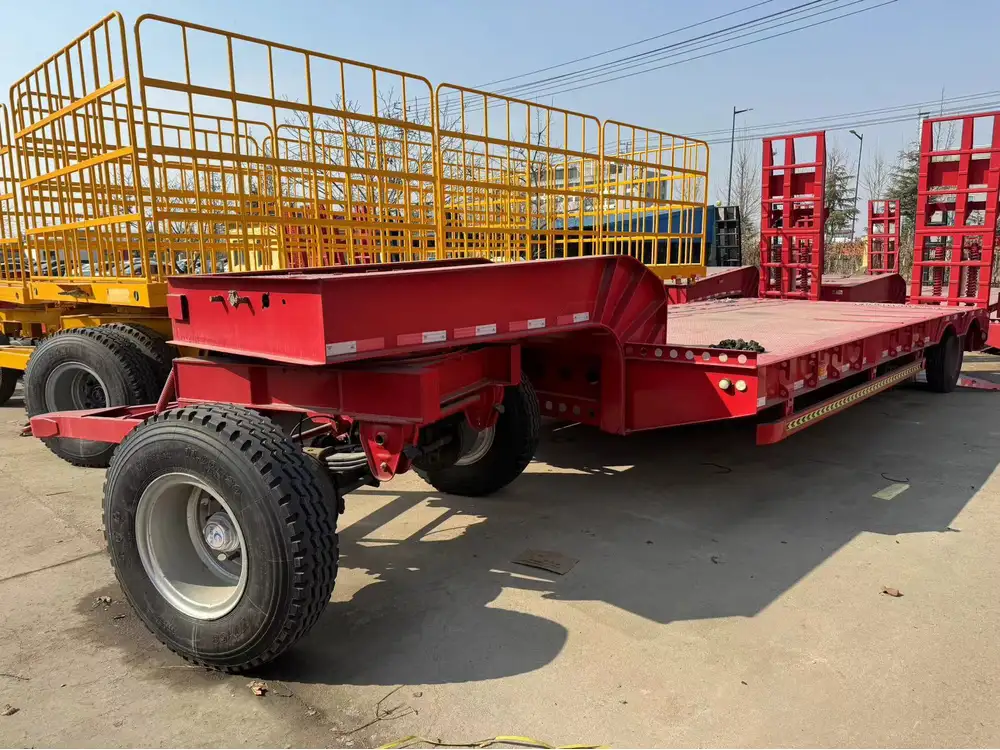
Optimizing Trailer Weight for Efficiency
Material Selection
Choosing the right materials is a balancing act between durability and weight. At CarMax Vehicle, we opt for high-strength, lightweight materials that provide the necessary robustness without adding unnecessary heft. Advanced alloys and composites are integral to achieving optimal trailer performance.
Design Innovations
Innovative design techniques, such as modular construction and aerodynamic shaping, contribute to weight reduction and improved fuel efficiency. Our design teams continuously explore new methodologies to enhance trailer functionality while minimizing weight.
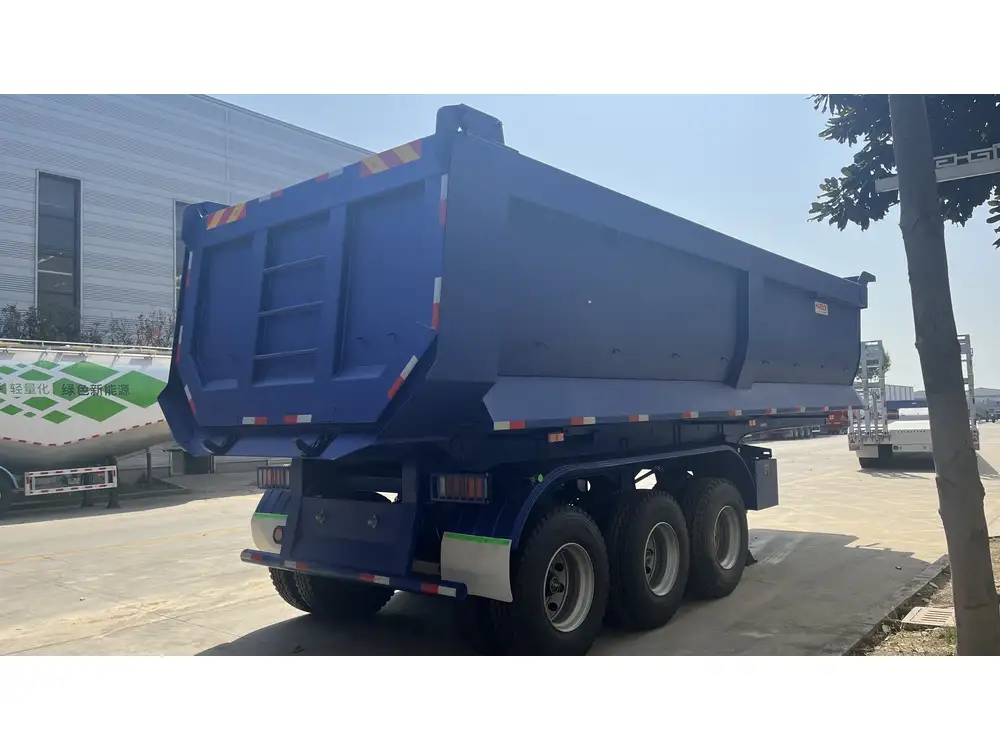
Maintenance Practices
Regular maintenance is crucial in preserving the integrity and weight efficiency of flatbed trailers. Proper upkeep ensures that all components function as intended, preventing weight fluctuations due to wear and tear. CarMax Vehicle provides comprehensive maintenance guidelines to our clients, ensuring their trailers remain in peak condition.
Benefits of Choosing CarMax Vehicle for Your Flatbed Trailer Needs
- Expertise and Experience: With years of industry experience, CarMax Vehicle delivers reliable and high-quality 48 ft flatbed trailers tailored to your specific needs.
- Customization Options: We offer a range of customization options, allowing you to select features that optimize your trailer’s weight and performance.
- Quality Assurance: Our trailers undergo stringent quality checks to ensure they meet all safety and regulatory standards, providing peace of mind during transportation.
- Innovative Design: Leveraging the latest design technologies, we create trailers that balance durability, weight efficiency, and functionality.
- Customer Support: Our dedicated support team assists you throughout the purchasing and maintenance process, ensuring your trailer operates smoothly and efficiently.
Conclusion
Understanding the weight dynamics of a 48 ft flatbed trailer is essential for optimizing transportation efficiency, ensuring safety, and complying with legal standards. At CarMax Vehicle, we are committed to providing top-tier trailers that meet these requirements through meticulous design, quality materials, and innovative solutions. Whether you are transporting heavy machinery, construction materials, or oversized goods, our 48 ft flatbed trailers offer the reliability and performance your business demands.
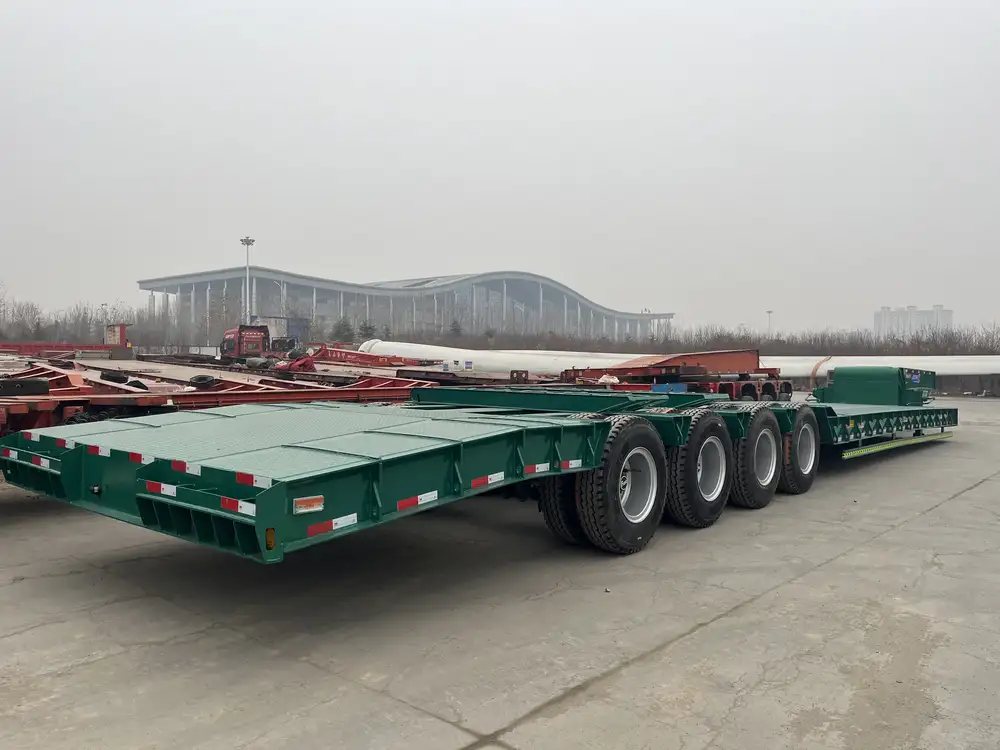
Frequently Asked Questions
1. What is the typical empty weight of a 48 ft flatbed trailer from CarMax Vehicle?
Our 48 ft flatbed trailers generally have an empty weight ranging from 10,000 to 15,000 pounds, depending on the specific configuration and materials used.
2. How does load distribution affect the overall weight of the trailer?
Proper load distribution ensures balanced weight distribution across all axles, enhancing trailer stability and minimizing the risk of overloading any single component. This balance is crucial for safety and compliance with weight regulations.

3. Can the payload capacity of a 48 ft flatbed trailer be customized?
Yes, CarMax Vehicle offers customization options to adjust the payload capacity based on your specific transportation needs. Factors such as frame reinforcement and axle configurations can be tailored to achieve the desired capacity.
4. What materials are used in constructing the decking of CarMax 48 ft flatbed trailers?
We utilize high-strength steel, aluminum, and composite materials for our trailer decking, selecting each material based on the required balance of durability and weight, tailored to your specific cargo requirements.
5. Are CarMax 48 ft flatbed trailers compliant with all U.S. weight regulations?
Absolutely. Our trailers are designed and manufactured to comply with all relevant U.S. weight regulations, including those imposed by the Federal Bridge Formula, ensuring legal and safe operation across interstate highways.



